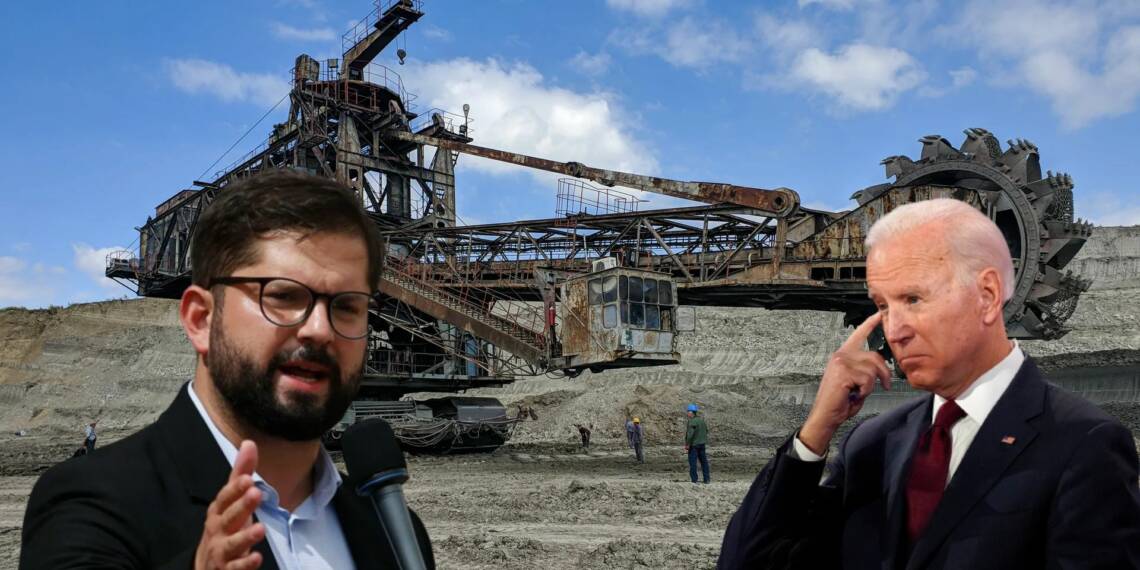The tale of El Dorado describes the narrative of a region in South America that reportedly held vast gold reserves. Expeditions were launched for nearly two centuries to find the mythical country where anointed princesses were smeared in gold powder and boats packed with gold pieces and emeralds were sunk as a gift to the gods. Expeditions ended in terrible and costly failures. However, the legend of El Dorado appears to be becoming a reality as South American countries prepare to become the world’s lithium hub.
The soft and silvery mineral lithium is at the heart of the energy transformation. Rechargeable batteries are needed as governments around the world work to transition to greener economies. These are used to power electric vehicles as well as to store energy from renewable sources like wind and solar. Lithium, a vital component of these batteries as well as those in mobile portable gadgets, serves as an “energy storage” medium.
According to the most recent data, Latin America holds 60% of all identified lithium resources around the world. These are located mainly in Bolivia, Argentina and Chile, sometimes referred to as the “lithium triangle”.
As you can imagine, demand for lithium has spiked in recent years, as more people choose electric vehicles, and is likely to continue growing as high gas prices push more to transition to electric modes of transportation. As a result, lithium prices have soared and this has led to a scramble for lithium resources.
Recently, German Chancellor Olaf Scholz made use of his visit to Latin America to lobby for additional supplies of lithium for his country’s automotive industry.
China is pursuing a similar strategy of influence in the region, spending aggressively on lithium contracts in those same three countries in order to keep up with surging demand in its own manufacturing sector.
Chinese president Xi Jinping addressed the Summit of the Community of Latin American and Caribbean States to stress the importance of China’s relationships in the region and pledged continued support for industrial partnerships.
Diplomatic efforts like those made by Xi and Scholz are simply the most recent in a centuries-long trend of foreign governments and corporations wanting to profit from poor countries endowed in natural resources, often with lax regulations and inexpensive labour.
But, these days, leaders of the world’s most powerful governments and corporations are encountering new resistance in Latin America, which is acutely aware of the importance of its lithium supplies.
As a result, several Latin American administrations are now driving a much tougher bargain.
Take, for example, Chile. During his first year in office, President Gabriel Boric has made it a key priority to rein in mining firms, both domestic and foreign.
In his most aggressive move to date, the left-wing president rejected a proposed $2.5 billion iron-ore project in the northern Chile, citing its proximity to a wildlife preserve. Dubbed the Dominga Project, halting the proposed mine was a pillar of Boric’s campaign to prioritize environmental conservation over economic stimulation.
“We don’t want projects that destroy our country, destroy communities,” Boric said during his presidential campaign. “No to Dominga!”
East of Chile’s mineral-rich Atacama Desert, Bolivia’s left-wing president, Luis Arce, also has big plans for his country’s lithium reserves.
“This precious mineral has been sleeping for too long,” he said after reaching a billion-dollar deal with Contemporary Amperex Technology ltd. — a major Chinese battery producer — to jointly begin the process of developing a domestic battery manufacturing sector. “Today begins the era of industrialization of Bolivian lithium.”
Also Read: Gustavo Petro’s Colombia is a lesson of political stability for Latin America
This is not your typical overseas investment. For the first time, Bolivia is requesting participation in both ends of the industrial process: mining the lithium and manufacturing the batteries that use it. Manufacturing products from raw resources has typically been the missing link in commodity-rich countries’ economic development.
Bolivia has the opportunity to cash in on the lithium boom and fundamentally reshape its economy because lithium is essential in the creation of batteries for cellphones, computers, and the fast-rising industry of electric vehicles.
Argentina is following a similar trajectory. A few months ago, speaking to Fastmarkets in London, Argentinian government officials explained how the government is doubling down on lithium as a pillar of the country’s growing mining sector. Supported by business-friendly initiatives to attract capital and a developing common framework for prospective developers, Argentina aims to strengthen its lithium output and processing capacity in the coming years.
The benefits that lithium provides are now being reinvested in more ambitious, long-term technological transformations that will allow civilizations to overcome productivity constraints. Natural resources can be a great driver of development, but without proper investment and long-term governance, they risk becoming another El Dorado. South American countries, thankfully, recognise this. They would no longer tolerate the parasitic powers exploiting their natural riches.







